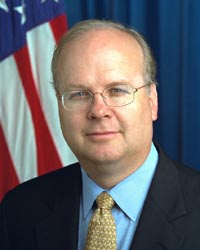Deja Vu All Over Again: Bush Admin Interference in Judicial Matters
 The Bush administration's political rigging of judicial matters is all over the news. There's the firing of the eight U.S. Attorneys. Then there's Sharon Eubanks, the lead attorney in the U.S. Department of Justice (DOJ) racketeering case against tobacco companies. Eubanks recently told the Washington Post that Bush appointees at DOJ pressured her to weaken the federal government's case against Big Tobacco.
The Bush administration's political rigging of judicial matters is all over the news. There's the firing of the eight U.S. Attorneys. Then there's Sharon Eubanks, the lead attorney in the U.S. Department of Justice (DOJ) racketeering case against tobacco companies. Eubanks recently told the Washington Post that Bush appointees at DOJ pressured her to weaken the federal government's case against Big Tobacco.
The more things change, the more they stay the same. In February 2000, the New York Times reported that then-Governor Bush's political advisor, Karl Rove, had interfered with the Texas Attorney General's plans to bring a lawsuit against major U.S. tobacco companies in order to recoup state Medicaid funds spent treating sick smokers.
How did Rove pressure Texas Attorney General Dan Morales not to file the suit? He helped draft a 1996 push poll aimed at maligning Morales. The phone poll was financed with tobacco company money, and was carried out by a company called Public Opinion Strategies, which describes itself as a "Republican polling firm."
A push poll is a dirty campaign technique that attempts to alter respondents' view of a candidate with misleading questions, under the guise of a legitimate poll. Respondents are asked damaging questions about a candidate, such as: "Would you vote for Mr. X if you knew Mr. X had been convicted of fraud and domestic violence?" Push polls have been condemned by the American Association of Political Consultants.
Bush had earlier threatened to fire any campaign staffer found to be involved with push polls. After the New York Times story broke, Bush spokesman Ari Fleischer sought to minimize Rove's involvement, saying that Rove only reviewed a fifth draft of the Morales push poll. But in a 1997 deposition, Rove had admitted to offering suggestions for the poll's questions. The Morales poll asked respondents how they would vote if they knew the Democratic attorney general had provided financial support to Nation of Islam leader Louis Farrakhan -- which he never had. Other questions misrepresented Morales' stand on touchy Texas issues, like gun control and affirmative action.
Rove, now a senior White House advisor, was never fired. And his dual role -- as a $3,000-a-month consultant to Philip Morris from 1991 to 1996, and as a political advisor to then-Governor Bush from January 1995 to December 1996 -- barely received any attention.
Is Bush's presidential administration using the same dirty tricks it did a decade ago? Emails recently linked Rove to the DOJ attorney firings. Given Rove's cozy relationship with Philip Morris, and his willingness to scuttle a Texas lawsuit against tobacco companies, it wouldn't be too surprising if his fingerprints were also found on attempts to weaken the DOJ case against the tobacco industry.




